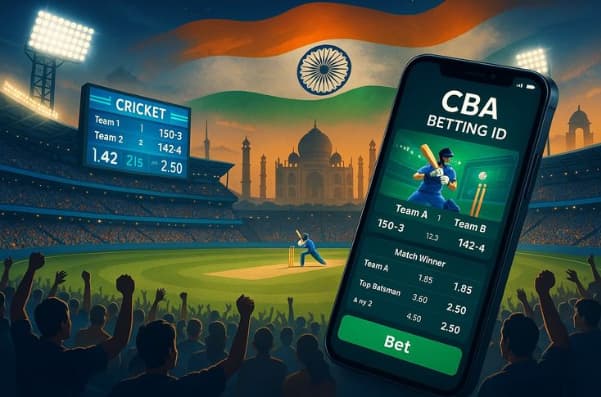Online betting in India is growing rapidly, with millions placing wagers on cricket, fantasy sports, card games, and more.
But many people are unsure whether Online betting in India is actually legal. The reality is, India does not have a single national law governing online betting.
Some states allow online betting, others ban online betting, and the rest stay silent. Old laws, court decisions, and new rules all play a part. This makes it hard to know what’s considered legal betting in India and what’s not.
Understand where online betting is legal or illegal in India and what you need to know before you play in this article.
Key Takeaways On Online Betting In India
- India has no central law on online betting; each state sets its own rules.
- Skill-based games (rummy, poker, fantasy sports) are generally allowed; chance-based games are mostly banned.
- Goa, Sikkim, and Nagaland offer licenses for certain betting and gaming platforms.
- Offshore websites are not licensed in India and pose regulatory and payment risks.
- The new Bill bans real-money online games and imposes strict penalties on violators.
- Courts and ministries are urging a national policy on online betting.
What Is Online Betting?
Online betting means placing money or something valuable on the outcome of a game or event using the internet.
This can include sports matches, card games, fantasy sports, or online casino-style games. People usually place their bets through websites or mobile apps.
In India, some common forms of online betting include sports betting such as cricket match predictions and football score bets, along with online poker, rummy, and other similar activities like fantasy leagues such as Dream11.
Some platforms also offer newer formats like eSports or virtual stock trading games.
Indian law makes an essential difference between the two types of games:
- Games of skill: Depend on knowledge, practice, or strategy, and these are often allowed.
- Games of chance: Rely mostly on luck; these are usually banned in many states.
This difference matters because a game’s legal status often depends on whether it is seen as skill-based or chance-based.
Tips:Players should also be aware of the risks of using illegal betting sites, as these platforms often involve payment issues, a lack of consumer protection, and possible legal consequences. The new Online Gaming Bill has also banned many such real-money betting apps in India
Is Online Betting Legal in India?
India does not have one clear national law that says whether betting and gambling in India are fully legal or illegal. Instead, the rules come from a mix of old laws, new digital guidelines, and decisions made by individual states and courts.
This patchwork of laws makes it hard for users to know if online betting is legal in their state. While some states issue licenses, others ban them entirely, and many remain unclear.
This makes the legal status of online betting different from place to place.

Central Laws Governing Betting
The main national law is the Public Gambling Act of 1867. It bans running physical gambling houses but doesn’t mention anything about online betting, since it was made long before the internet. As a result, it leaves a legal vacuum that modern courts and regulators are still trying to interpret.
The Information Technology (IT) Rules 2021 allow the government to block websites and apps that go against public interest, including illegal betting platforms. However, these rules also do not create a system to license or regulate online betting.
The Online Gaming and Betting Bill, 2025 now provides national clarity by banning most real-money online betting while allowing only esports and free-to-play games. It replaces the earlier legal grey area with stricter, uniform rules across India.
What Indian Courts Say About Online Betting
Under Article 19(1)(g) of the Constitution, people have the right to carry out any profession or trade, which includes running online skill-based games.
Indian courts have also supported this view. The Supreme Court has said that fantasy sports are games of skill. Other courts have ruled that rummy and poker also need skill and can be legal, depending on the state.
State vs. Central Authority
The Constitution gives states the power to make their own laws on gambling and betting. This is why each state can choose to allow or ban online betting.
At the same time, the central government controls digital content and e-commerce through the IT Act, which leads to overlapping powers. As a result, both state and central authorities are involved, but there is no clear system in place.
New Bill on Online Gaming and Betting in India (2026)
The Promotion and Regulation of Online Gaming Bill has brought major changes to India’s betting landscape. Unlike earlier grey areas, the law now provides strict clarity on what is allowed and what is banned.
Key provisions include:
- A complete ban on real-money online games, including fantasy sports, rummy, and poker.
- Only e-sports and non-monetary games are permitted.
- Heavy penalties: fines up to ₹1 crore and 3 years imprisonment for violations.
- Restrictions on advertising and payment gateways linked to betting platforms.
This bill effectively ends confusion about whether online betting is legal in India, making most money-based games unlawful.
How Does Online Betting Work in India?
Online betting in India typically takes place through two types of platforms: offshore betting websites and a limited number of licensed platforms for skill-based games in select states.
While the user experience may appear similar, the legal status and associated risks vary widely.

Betting’s Domestic vs. International Platforms
In states like Sikkim and Nagaland, a few platforms have received government licenses. These websites are allowed to operate legally within those states and follow specific rules.
In most other parts of India, people often use international betting sites. These are platforms that target Indian users but do not have Indian licenses. This puts them in a legal grey area.
While not directly banned in many states, these sites are not officially recognized and can be blocked or restricted by the government.
Payment Gateways & Transactions For Online Betting
Most users pay using UPI, credit or debit cards, e-wallets, or occasionally even cryptocurrency. However, Indian banks and payment apps may block transactions related to unlicensed betting.
To work around this, some platforms use middlemen or mirror websites. But this adds legal and financial risks for users.
In short, while online betting may seem easy to access, where you play and how you pay can affect whether it’s legal or safe.
Types of Online Betting & Their Legal Status
Online betting in India is not treated the same for all games. Some types are allowed in certain states, while others are completely banned or fall into grey areas.
The key factor is whether the online betting game is considered one of skill or chance.

Sports Betting & Horse Racing
Betting on sports is banned, except for horse racing, which is seen as a game of skill.

- Horse racing is one of the few betting activities recognized by Indian courts as a game of skill. It is legal in many states under proper licensing.
- When it comes to other games, the question of whether sports betting is legal in India always rely on state laws. Cricket and football betting, on the other hand, are mostly seen as games of chance. These are banned in most states unless allowed under local laws, like in Sikkim.
Fantasy Sports
Fantasy sports are usually allowed, but only if considered games of skill.

- Platforms like Dream11 are treated as games of skill by the Supreme Court. This makes fantasy sports legal in many states.
- However, some states like Telangana, Andhra Pradesh, and Assam have banned even skill-based games involving real money.
Poker & Rummy
Courts have called these skill games, but they are still banned in some states.

- Indian courts have ruled that both poker and rummy involve skill. But their legality still depends on individual state laws.
- For example, they are allowed in Nagaland under a license, but may be banned or restricted elsewhere.
Online Casinos & Bingo

These are games of chance and are mostly banned, except in a few states.
- These games are mostly chance-based and are only legal in Goa and Sikkim, where licenses exist.
- In most other states, online casino games are banned.
Virtual Stock Games & Opinion-Based Betting
These look like trading but are often treated as illegal betting.
- Some apps offer games that look like investing or trading but are actually betting.
- Tamil Nadu banned such games linked to events like IPL matches in 2023.
- SEBI has warned users about using such platforms.
What Are The Punishments For Illegal Online Betting In India?
Penalties for illegal online betting in India depend on the laws of the state where the activity takes place. While some states impose small fines, others have stricter rules with jail time. Punishment depends on whether someone is just betting or running an illegal site. In both cases, the government is cracking down more strictly.
The seriousness of the punishment usually depends on whether someone is just playing or running a betting platform.
The Online Gaming Bill has now introduced stricter nationwide penalties:
- Players can face fines of up to ₹10,000 for real-money betting.
- Repeat offenders may face jail terms of up to 2 years.
- Operators of illegal betting platforms risk heavy fines and permanent bans.

Legal Consequences Include
People involved in illegal betting, whether users or operators, can face legal action under both central and state laws.
- Under the Public Gambling Act, 1867, running or visiting a gambling house can lead to fines of ₹100–₹200 or up to 3 months in jail. This law still applies in many parts of India.
- States like Maharashtra have their own gambling laws that can include harsher penalties, including longer jail terms and police action for online betting.
- The Enforcement Directorate (ED) has taken action under money laundering laws in cases involving illegal betting platforms like Fairplay, even though betting itself is not a direct offence under the PMLA.
- Digital platforms involved in illegal betting may face site bans, app removals, and restrictions under the IT Rules, 2021.
Conclusion: Real-Money Online Betting In India Is Officially Banned In 2026
The Bill bans all forms of real-money online betting and gaming in India, finally replacing the confusing mix of state laws and court rulings with a single national framework. This marks a decisive shift in how online gambling is regulated.
Unlike earlier rules that allowed some skill-based games in certain states, the new Bill does not distinguish between games of skill or chance when real money is involved. Fantasy sports, poker, rummy, casino-style platforms, and sports betting are all prohibited.
For players, the only safe option is to stick with free-to-play games or licensed e-sports formats. Following the updated law is the best way to avoid penalties and financial risks.
FAQs
Offshore sites are not licensed in India and operate in a grey area. They may be blocked and could pose legal or financial risks.
It bans real-money online betting and gambling across India, except for esports and free-to-play games.
Fantasy sports are considered games of skill and are allowed in many states. Some states, however, have banned real-money gaming.
You may face fines or jail under Maharashtra’s gambling laws, especially for organizing or promoting betting.
Only licensed platforms are allowed to use UPI. Unlicensed sites often face payment blocks.
Courts have pushed for it, and discussions are ongoing, but no central law exists yet.